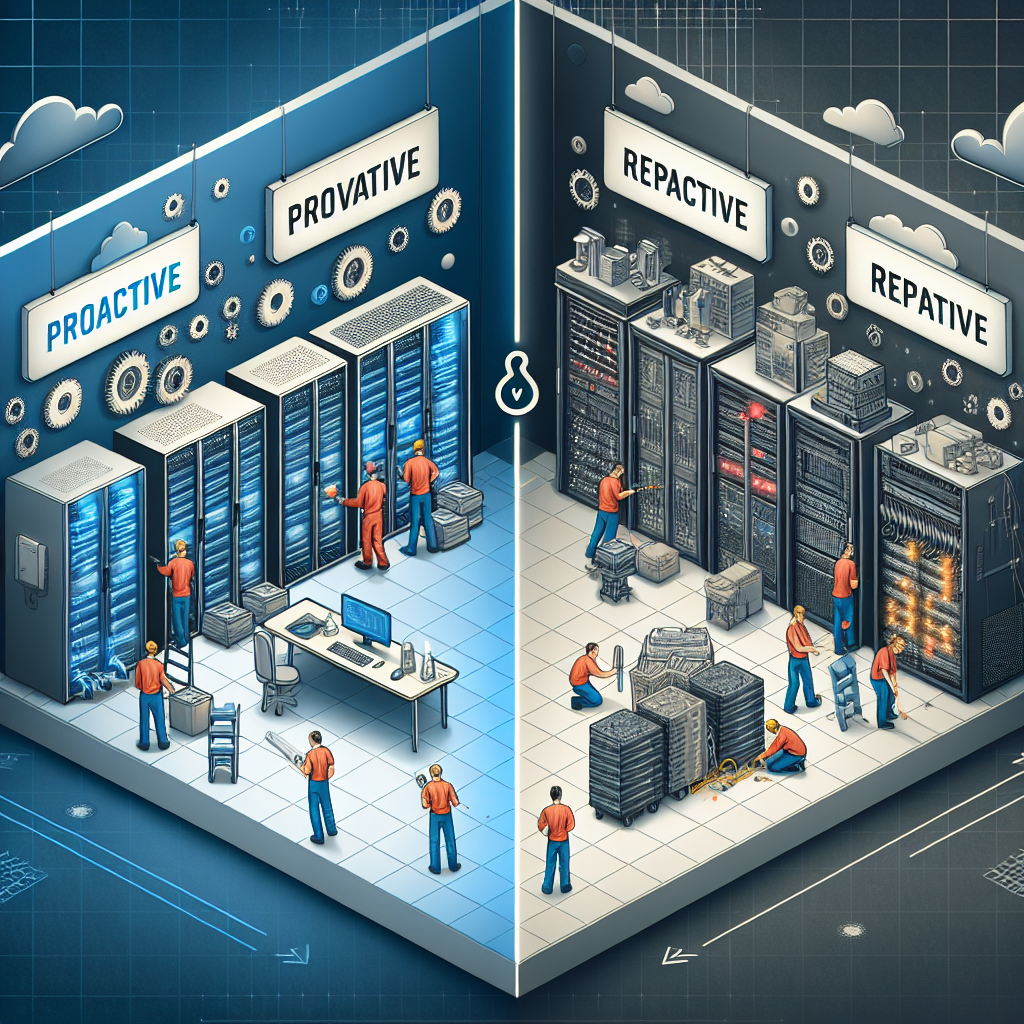Your cart is currently empty!
Proactive vs. Reactive: Why Data Center Reactive Maintenance is Essential

In today’s fast-paced and technologically-driven world, data centers play a crucial role in the functioning of businesses and organizations. These facilities house the critical infrastructure that supports the storage, processing, and distribution of data, making them essential for the smooth operation of any modern enterprise.
One of the key aspects of maintaining a data center is the approach to maintenance – proactive vs. reactive. Proactive maintenance involves regularly scheduled inspections, preventive maintenance tasks, and monitoring systems to identify and address potential issues before they escalate into major problems. On the other hand, reactive maintenance involves addressing issues only when they arise, often in response to a critical failure or outage.
While proactive maintenance is generally seen as the preferred approach, reactive maintenance still plays a crucial role in ensuring the reliability and uptime of a data center. Here are some reasons why data center reactive maintenance is essential:
1. Unforeseen issues: Despite the best efforts of proactive maintenance, there are some issues that cannot be predicted or prevented. Hardware failures, power outages, and environmental factors can all lead to unexpected downtime in a data center. In such cases, reactive maintenance is necessary to quickly identify and resolve the issue to minimize the impact on operations.
2. Cost-effective: While proactive maintenance can help prevent some issues, it can also be costly and time-consuming. Reactive maintenance allows data center operators to focus their resources on addressing critical issues as they arise, rather than spending time and money on unnecessary preventive measures.
3. Flexibility: In a rapidly changing technological landscape, data centers must be able to adapt to new challenges and requirements. Reactive maintenance allows for greater flexibility in responding to emerging issues and implementing new solutions, ensuring that the data center remains up-to-date and efficient.
4. Quick resolution: When a critical failure occurs in a data center, time is of the essence. Reactive maintenance enables operators to quickly identify the root cause of the issue and implement a solution to restore operations as soon as possible. This can help minimize downtime and prevent further disruptions to the business.
In conclusion, while proactive maintenance is important for preventing issues and ensuring the long-term reliability of a data center, reactive maintenance is also essential for addressing unforeseen issues and minimizing downtime. By striking a balance between the two approaches, data center operators can ensure that their facilities remain operational, efficient, and secure in the face of ever-evolving challenges.

Leave a Reply